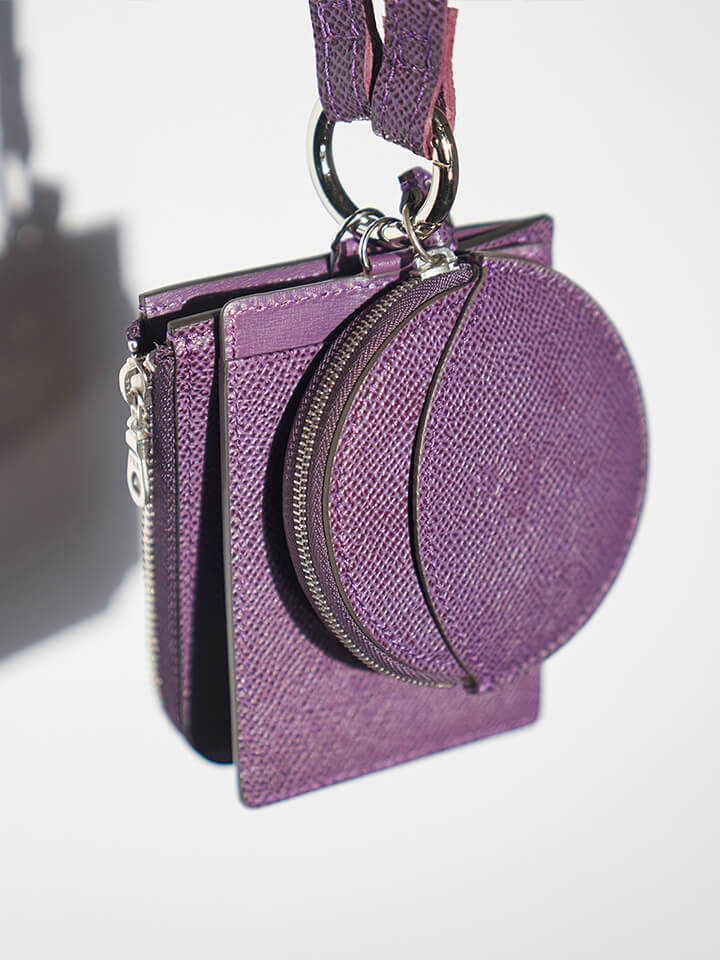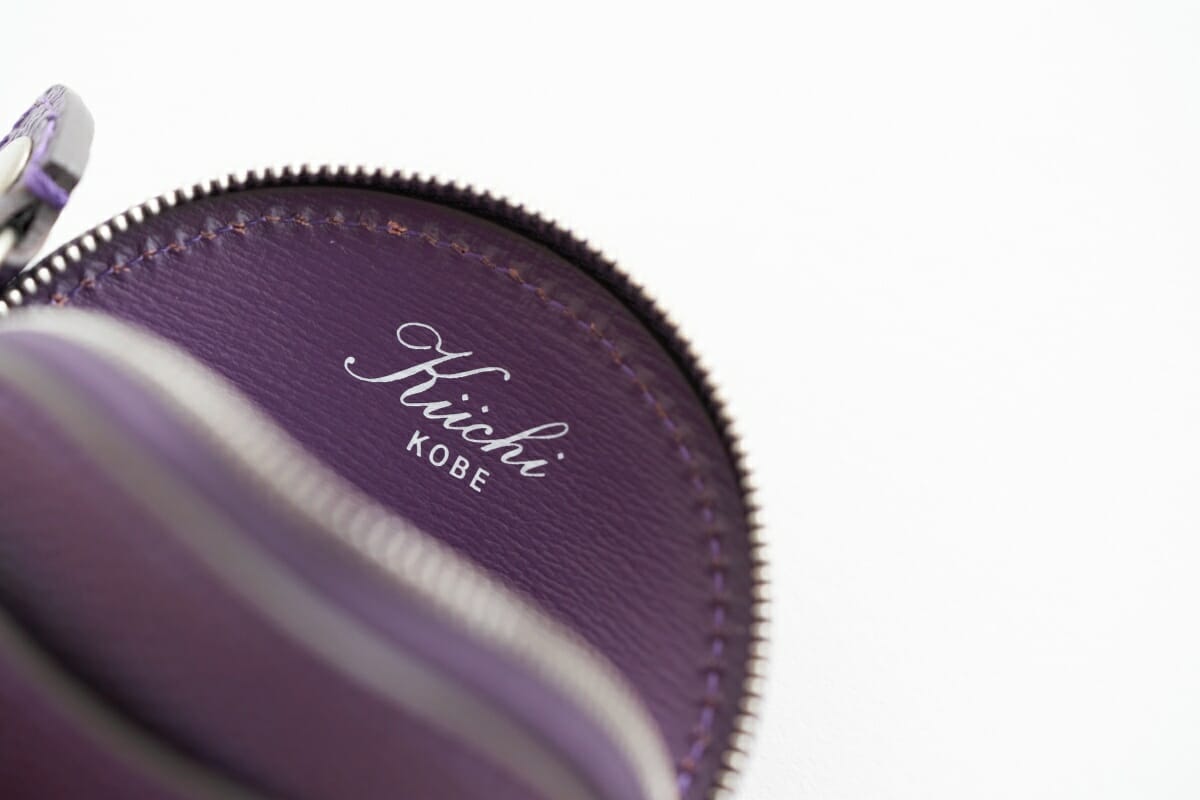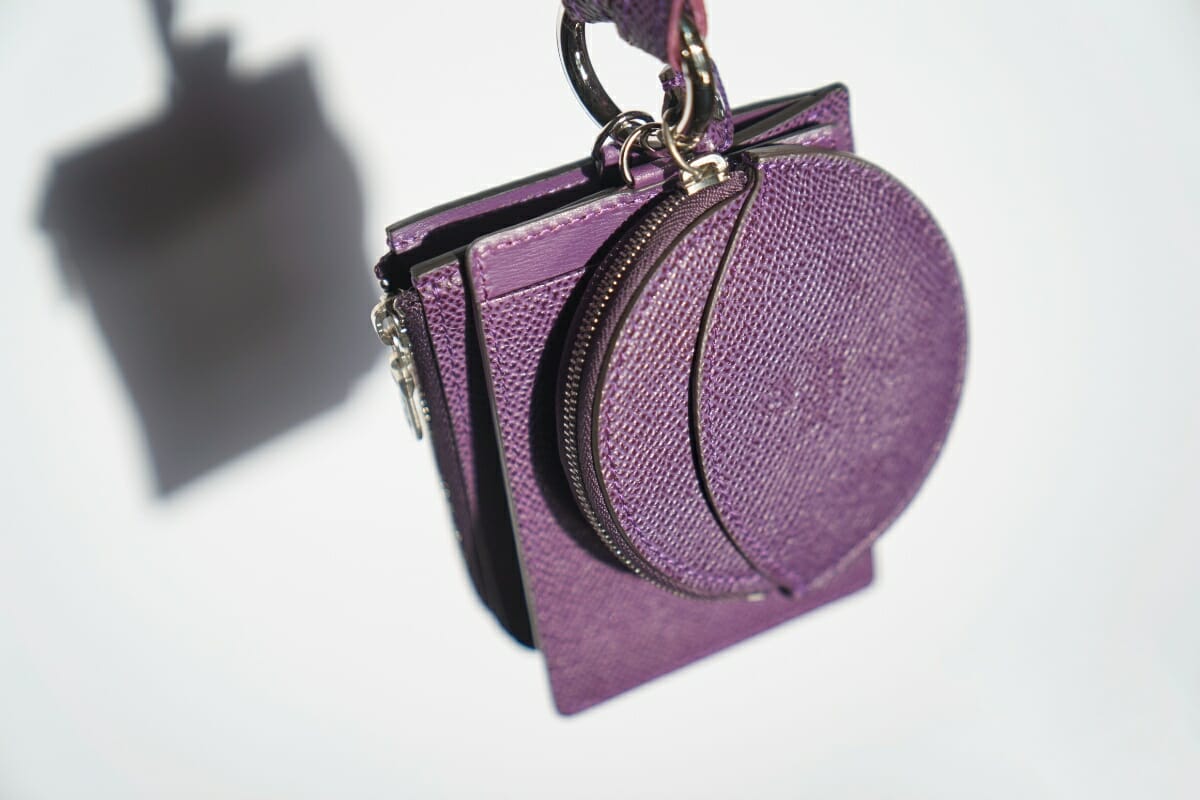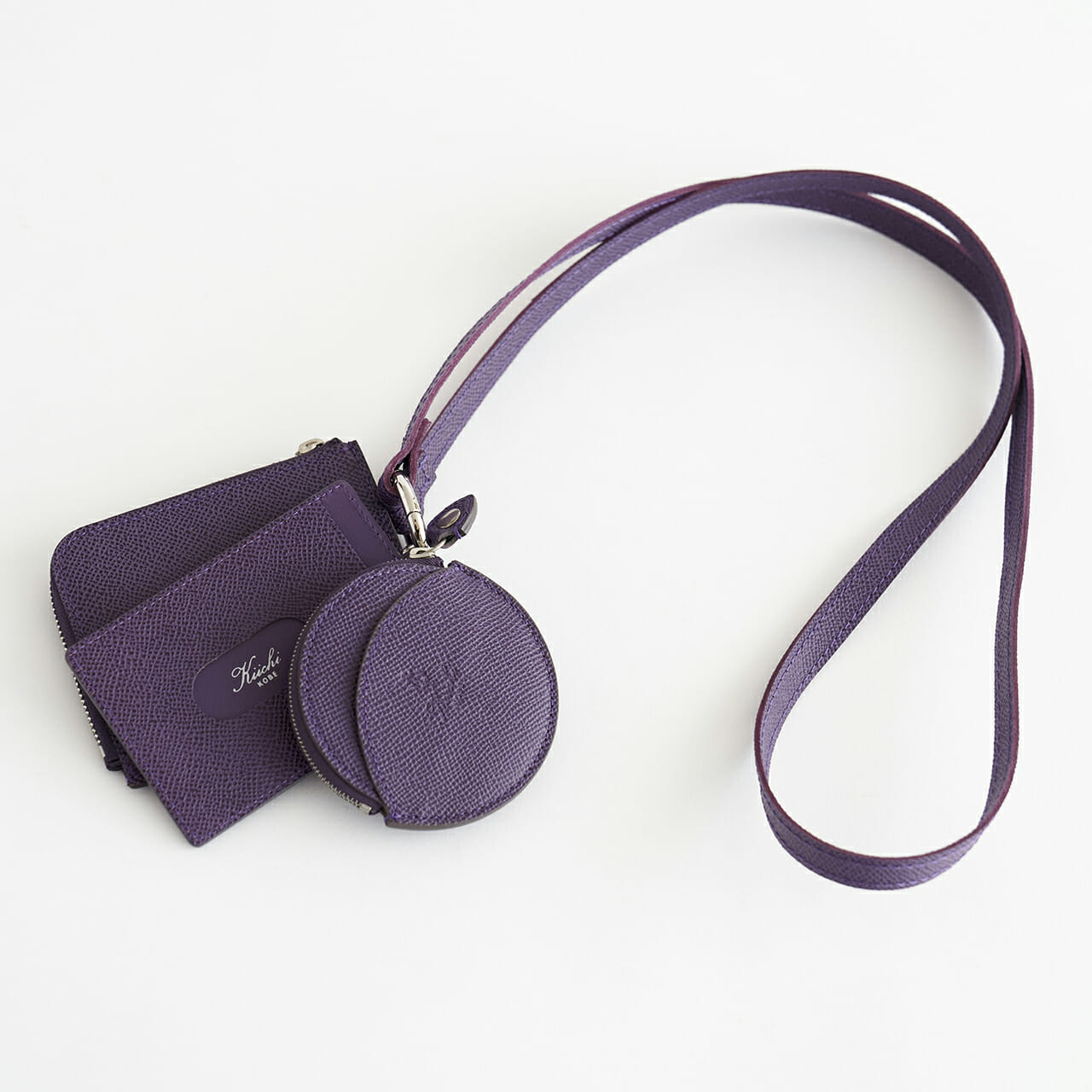
Products: Kiichi
Kiichi:Leather trinkets made from Kobe leather that are made to the best of their ability to be sustainable

Kobe is located about an hour's drive from Tatsuno and Himeji, two leather producers with the largest market share in Japan. The region is also famous for Kobe beef, a brand that Japan prides itself on. Taking advantage of this favorable location, Kobe Leather was developed.
Even if they claim to be Japanese leather in the first place, raw leather is often imported from overseas. But Kobe leather also comes from Hyogo prefecture. Moreover, Tajima beef, which produces Kobe beef, is used. As an aside, there is no such thing as Kobe beef. Demolished Tajima beef is ranked, and only meat that meets strict standards is awarded the title of Kobe beef. In 2019, the Kobe Leather Cooperative was also established to issue certificates in conjunction with the Kobe Meat Marketing Council and slaughterhouses, and all raw hides are properly managed through traceability. This is rare in the world, and it's a leather with a visible maker.
Tanning is done in Himeji and Tatsuno, and production is done in Kobe. As you may have already noticed, the whole process from procurement to production of raw hides and skins is completed in Hyogo Prefecture. As a result, the distance traveled to complete the product is considerably less. In other words, compared to leather made from raw leather imported from abroad, this leather is environmentally friendly, with significantly less greenhouse gas emissions into the atmosphere. It can be said that the industry is building an ideal circulation model for the future leather industry.
Kobe Leather is the first leather company to have a regional collective trademark with a place name in the trademark. That's why quality is a concern, but when it comes to the raw skin of Tajima beef, the creator of Kobe beef, many people probably have a high-class image. But that's not really the case. Although it is tough because of its strong fiber, the raw leather is smaller, thinner and more difficult to handle than overseas. Moreover, there are only a few leather brands that actively use them because the products that can be made are limited. That doesn't mean you're wasting precious byproducts. Of course, quality is important in leather products, but using Kobe leather also leads to sustainable manufacturing.
Today, most of Kiichi's top 10 favorites are made with Kobe leather. This means that many people understand and agree with how Kobe leather was created. There are still only a few items available, but the company plans to add more to its lineup at any time. There will be more chances to get a real "Made in Kobe."

A unique set of four items: a pass case, a coin case, a mini wallet and a strap. The parts can be easily attached and removed as needed and, of course, used on their own. You can enjoy various arrangements to suit your style and mood. The beautiful colored purple leather is also a focal point, making it a perfect accent for a simple outfit. What's more, it's embossed so scratches don't stand out.

